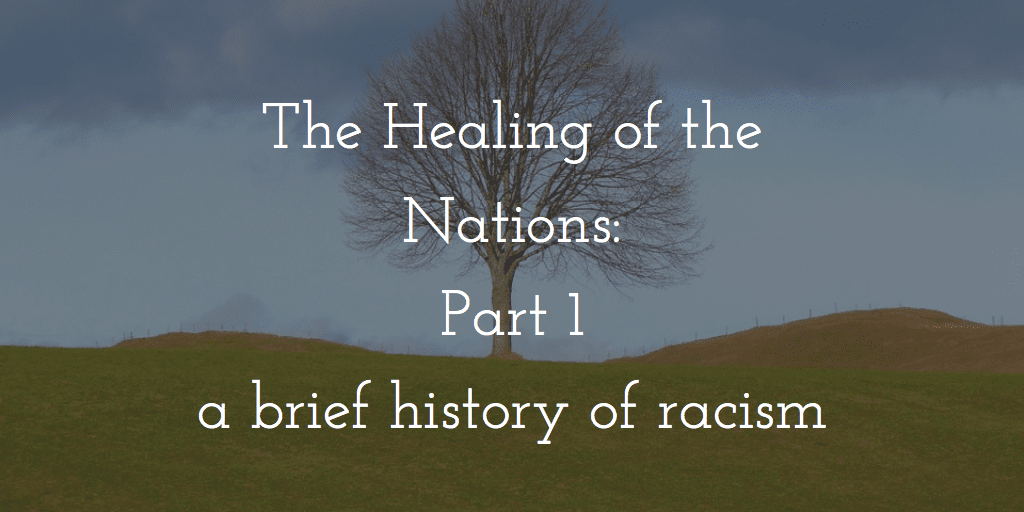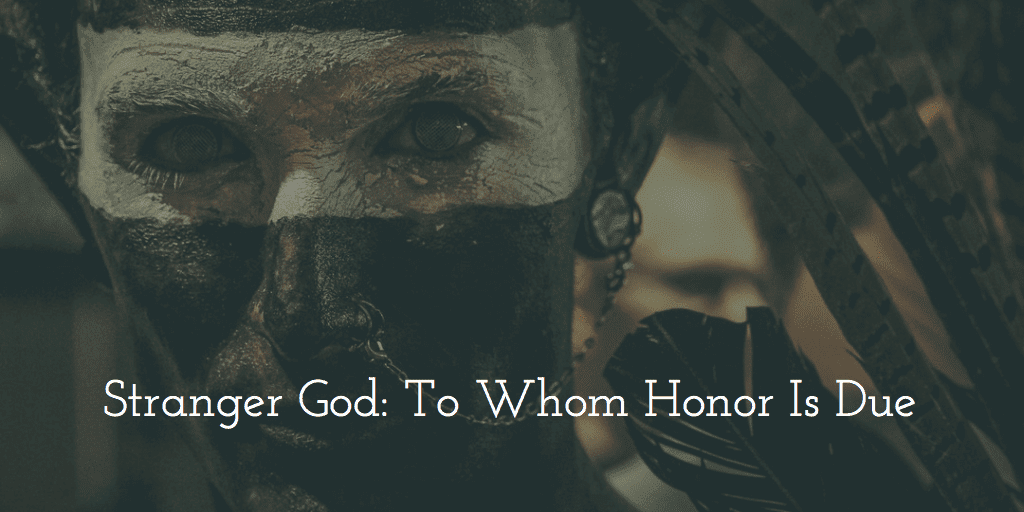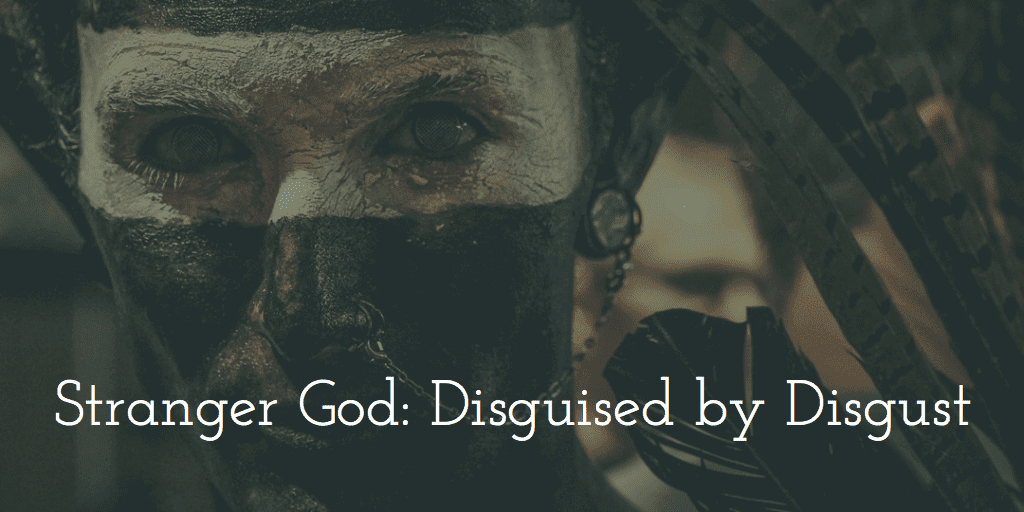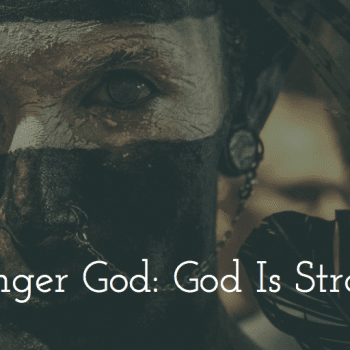 Last week was bad.
Last week was bad.
From Philando Castile and Alton Sterlin to the Dallas shootings, every day there was a new tragedy that only deepened the growing racial divide that we have in America. As a white-bodied man, I want to be an ally to my black brothers and sisters but often don’t know where to jump in.
And as I said a couple of weeks ago, I don’t think the best place for me to start is on social media.
But this matters a lot to me, racism is a part of my own story and confessing and repenting of this demon has been a part of my following Jesus. I know that in just a couple of weeks, the 24 hour news cycle will move on to another tragedy, another cause and another hashtag.
But I cannot.
I believe that racism is a specifically Christian sin. And since this matters so much, I want to share, for anyone who is interested, a sermon that I preached last year, along with my friend Sean Palmer.
For those of you who find the next two days of blogs helpful, you should know that Sean has taken what we’ve done together and updated and expanded it for a chapter in his upcoming new book (Spring 2017) “Unarmed Empire”
But until then I want to share this.
Here’s part 1
A brief history of racism
The very first story of murder that we know about in the world is the story of Cain and Abel. They get in the first ever worship war, and Cain raises up and kills his brother, and like his father before him, he tries to hide it from God.
It’s interesting, when we first meet Adam meeting Eve in the book of Genesis we find that they are introduced by their similarities. Adam is overwhelmed by how well they compliment one another. She is “bone of his bone and flesh of his flesh”
But right after sin enters the world, the first people we meet are Cain and Abel, and Genesis introduces them to us this way:
“Now Cain worked the fields, and Abel tended Sheep.”
When we first see Adam meeting Eve, we are introduced to them by their similarities. When we are introduced to Cain and Abel, we are introduced by their differences.
And every brother and sister since then.
And now Abel is dead, this problem that we see on the news every week, is as old as time itself.
But notice here God’s role in all this.
Death steals Abel’s cries from Cain’s ears. It silences his voice. But for God the effect is the opposite.
God hears Abel’s blood crying out from the ground. Death does not silence Abel’s voice, it amplifies it.
The same grave that removes Abel’s cries from Cain’s ears, only amplifies those cries in the presence of God.
God has big ears, and I have a hunch that this week his ears were ringing.
I think it’s interest that the Bible does not begin with the creation of a special race of people. When the first human is introduced into the story he is simply called ’ādām, which means “humankind.” …
Their “race” is not identifiable; Adam and Even are not black or white, they’re not even Jews.
The division of humankind into peoples and races is not even mentioned until Genesis 10.
When Genesis tells us about the role call of nations, that’s the first time we hear about any division between people, and it’s followed immediately by the story of the tower of Babel.
Now some slave owners in the 18th century took some of this part of the Bible to mean that certain groups of people were better than others. Some of you may have even heard these arguments, that Ham was cursed and so his family was inferior, and you can probably imagine what group of people they assumed that was.
But did you know, that globally and historically speaking, that was only a small group of Christians? The Church across the world condemned slavery early on, especially the Catholic Church.
This didn’t come from the Bible, it came from our heart.
Which of course the Bible is very honest about.
Because we’re not the first ones to think like this.
In the next book of the Bible, Moses one of the greatest leaders in the Bible, marries a woman from another race, and Moses’ sister starts to talk bad about the marriage.
And God gives her leprosy! The book of Exodus says that God turned her white, and made her (since she was so eager to keep the blood lines pure) spend a few days outside the camp and see what it was like.
That’s in your Bible, I kid you not. God turns Miriam white and keeps her in timeout.
That’s called White Dis-priveledge! And I never heard of a slave-owner paying much attention to that curse (even though it’s the only one in the Bible that actually mentions God’s curse turning the color of someone’s skin!)
What I think is interesting here, is that this is in the context of a story where the Israelites have been systematically oppressed because of their race, but now we learn that the problem isn’t that only some people are racist against them.
It’s that this is a problem that runs throughout humanity, the people who were just delivered from this evil, have it in themselves too.
But it gets worse…A couple of books later, is the book of Judges, one of the darkest books in the Bible.
Judges is written not prescriptively, but descriptively, it’s not telling us how to live, it written to show how we live when everyone is watching out for themselves.
And in Judges 12, we find now it’s not just Israel being racist against people who aren’t Israelites, now it gets into murdering people who aren’t in their tribe.
One tribe, the people of Gilead kill all the Ephraimites they can find, they set up a gate and have gate keepers and their whole job is to sort out the Ephramites
The problem is that they all look like each other, since their all Jews, so the Gileads remember that the Ephramites have an accent, and that there is a certain word they can’t say right:
The Gileadites captured the fords of the Jordan leading to Ephraim, and whenever a survivor of Ephraim said, “Let me cross over,” the men of Gilead asked him, “Are you an Ephraimite?” If he replied, “No,” they said, “All right, say ‘Shibboleth.’” If he said, “Sibboleth,” because he could not pronounce the word correctly, they seized him and killed him at the fords of the Jordan. Forty-two thousand Ephraimites were killed at that time.
It gets worse, the entire book of Jonah isn’t about a whale, it’s about unforgiveness and the frustrating nature of God who forgives and loves all the wrong people.
It’s about racism.
Jonah is the prophet of Israel, and he’s hand down the worst person in the book.
God calls him to go preach to Israel’s enemy the Ninehites, and Jonah doesn’t go, not because he’s worried that they wont’ listen, but because he’s worried that they will.
He doesn’t want them to be forgiven by God.
Jonah ends with him angry at God because God doesn’t treat his enemies like he wants him too.
I love the way Anne Lammott says this:
“You can safely assume you’ve made God in your own image, when it turns out God hates all the same people you do.”
But Jonah hasn’t made God in his image, and that’s his problem, He can’t keep God from loving these people, as much as he’d like to.
Jesus: The New Race, the New Humanity
Does it surprise anyone that Jesus addresses this issue in his very first sermon, at his home synagogue? Here it is from Luke 4:
Truly I tell you,” he continued, “no prophet is accepted in his hometown. I assure you that there were many widows in Israel in Elijah’s time, when the sky was shut for three and a half years and there was a severe famine throughout the land. Yet Elijah was not sent to any of them, but to a widow in Zarephath in the region of Sidon. 27 And there were many in Israel with leprosy in the time of Elisha the prophet, yet not one of them was cleansed—only Naaman the Syrian.”
All the people in the synagogue were furious when they heard this. 29 They got up, drove him out of the town, and took him to the brow of the hill on which the town was built, in order to throw him off the cliff.
My first sermon I got to go to Burger King afterward and people all slapped me on the back and told me what a good job I did. After Jesus’ first sermon they did just what Satan had done a few verses earlier and tried to push him off a cliff.
Because that is what happening here, the work of Satan, and Jesus has come to undo it.
Does it surprise you to know that Jesus’ famous story about the Good Samaritan is a story about racism?
In a world where they hated Samaritans, they saw them as half-breeds, as subhumans, Jesus makes a Samaritan the hero
Jesus had just been asked by someone, since we all know we are supposed to love our neighbor, who is our neighbor.
And Jesus tells him the story of a man who is beaten and robbed and stripped naked.
He’s unconscious so he can’t talk, you can’t hear his accent or what language he speaks.
He’s stripped naked, so you can’t see what identifying clothes or religious boundary markers he’s wearing.
The bloody unconscious man is unknown, he’s not a Jew or a Roman now, he’s just a man.
And Jesus tells the story in a way that let’s the man…that let’s us… put ourselves in his shoes.
Jesus is telling the story in a way to ask, “if you were about to die, who would you be okay with saving you?”
And the hero of the story is a Samaritan, he bandages him, pays for his medical care and for a hotel, and then Jesus asks him so now, who is your neighbor?
And the man says this:
The expert in the law replied, “The one who had mercy on him.”
He can’t even say the word Samaritan, that’s how deep this runs.
There’s another time in John 8, where the religious leaders are accusing Jesus again, and they say “Aren’t we right in saying that you are a Samaritan and demon-possessed?”
Here’s how Jesus responds:
“I am not possessed by a demon,” said Jesus, “but I honor my Father and you dishonor me.
I love the way they phrased this question, as if they’re just politely asking “Aren’t you demon possessed and a Samaritan?”
Because racism will always get the crowd worked up, and Jesus responds brilliantly
He doesn’t cooperate with their racism. He doesn’t go along with their assumption that to be a Samaritan was somehow a worse person.
He just says I’m not demon-possessed.
Did you know that when Jesus turns over the tables in the Temple it was in lots of ways about racism.
He was in the Court of the Gentiles, and he saw how the religious leaders had turned that into a marketplace.
They were crowding out anyone who wasn’t a Jew from being able to worship in the Temple.
So even thought this is going to be the thing that leads to Jesus arrest and execution, Jesus turns over the tables and notice what He says:
This is supposed to be a House of Prayer for All Nations
Because here’s what God knows, here’s what Jesus knows. God’s dream has been for all people.
Abraham was supposed to be the Father of all Nations, but He wasn’t.
The God of Israel was supposed to be known as a God for all people but He wasn’t.
Until…












